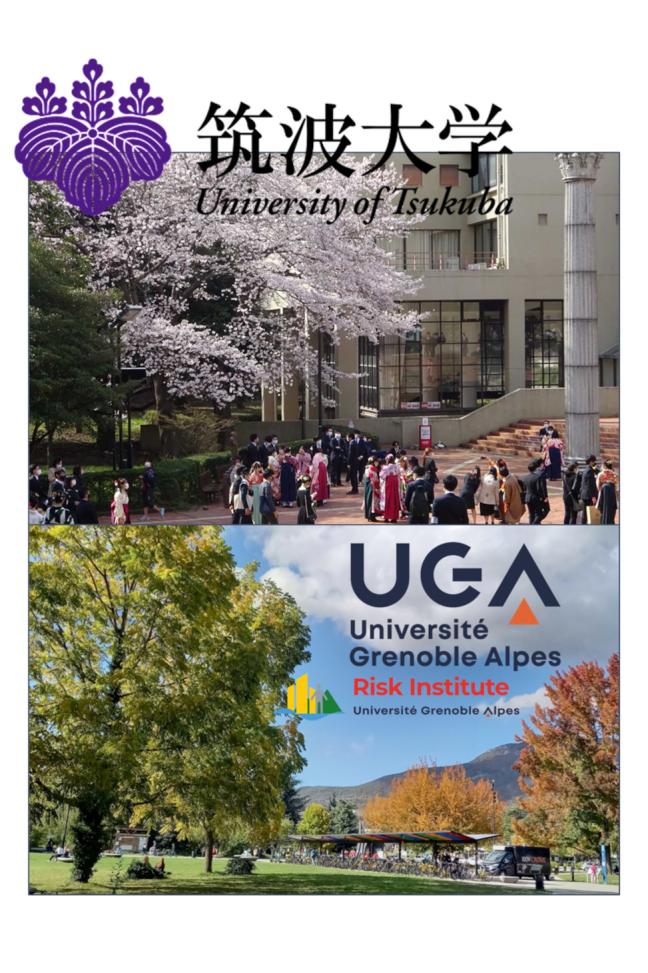- Share
- Share on Facebook
- Share on X
- Share on LinkedIn
Workshop / Event in English, Partnerships
On February 5, 2024
Saint-Martin-d'Hères - Domaine universitaire
The Risk Institute@Université Grenoble Alpes is organizing a series of webinars on risk management in 2023/2024 with the University of Tsukuba (Japan) to open a research partnership on the topic. This second webinar will take place online on Monday, February 5, 2024, from 10:15 to 11:15 am in France.
Webinar #2
Thematic: Critical Infrastructures at risk

Abstract
The ageing of the hydraulic works in France and around the world leads managers to choose between several scenarios: service life extension, repairs, reinforcements, or even complete replacement. The financial stakes are often very high, given the costs of manufacturing, construction and operating losses during shutdowns. Managers are therefore asking for as much information as possible to assess the remaining life and the level of risk associated with each of the aforementioned scenarios. In the case of welded steel structures such as turbine runners, lock gates, it is crucial to characterize and model the vulnerability of mechanically welded joints and the remaining useful life (RUL) of hydraulic structures. This work aims to characterize damage and lifetime of welded steel structures based on probabilistic fatigue design. This proposal presents a new research program (Medelia) to tackle and address several challenges related to this important field. The idea is to identify some drawbacks regarding usual fatigue verification of steel structures under high-cycle fatigue, to develop a fatigue study methodology of such structures. This probabilistic approach is based on fracture mechanics, applied to finite element models. A case study is introduced, focused on connections of a lock gate.
Julien BAROTH is a lecturer at Grenoble Alpes University and a researcher in the 3SR laboratory. His work focuses on mechano-probabilistic studies of sensitivity or reliability in mechanics, mechanical engineering and civil engineering. He is co-holder of the MEDELIA Chair in probabilistic fatigue analysis of steel structures.
Abstract
The risk-resilience design framework to infrastructure and lifeline systems for extreme natural hazards will be introduced. The associated case studies will be shown for estimating the uncertainty of seismic damage scenarios for
road bridges in the municipal road networks from a series of scenario-oriented risk analyses.
Professor Gaku Shoji received his Ph.D. in civil engineering from Tokyo Institute of Technology in 2001. He has been a lecturer at the University of Tsukuba since April 2001, an associate professor at the University of Tsukuba since May 2008, and a professor at the University of Tsukuba since December 2019. His research area of expertise is disaster information and informatics for infrastructure systems. He is currently conducting research on the nonlinear dynamics of infrastructures and lifeline systems under combined natural disasters, system reliability analysis, and resilience assessment.
Date
10.15 AM - 11.15 AM (France - GMT+1)
Zoom connection link:
https://us02web.zoom.us/j/82624586671?pwd=eEpEVGcraUdHQkhWS29SeDFpQUdLQ…
Meeting ID: 826 2458 6671
Passcode: 300727
Localisation
Saint-Martin-d'Hères - Domaine universitaire
Online ZOOM

- Share
- Share on Facebook
- Share on X
- Share on LinkedIn